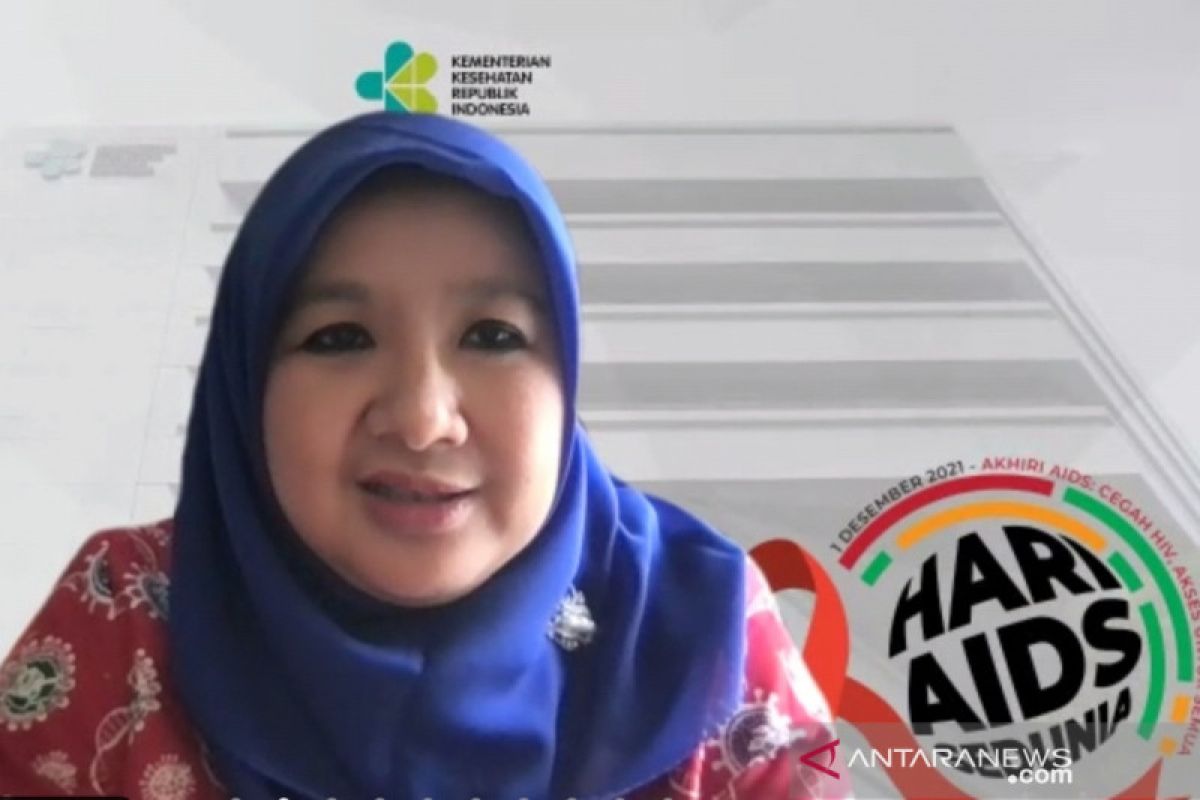Jakarta (ANTARA) - Director of control and prevention of directly infectious diseases at the Health Ministry, Siti Nadia Tarmizi, has said that HIV infections were 47 percent lower in 2020 compared to 2010.
"HIV infections in 2020 were 47 percent lower than in 2010. We hope to maintain this sloping number," Tarmizi remarked at the 2021 World AIDS Day webinar on Monday.
She said she hopes that the impact of the COVID-19 pandemic will not be widespread so that new HIV infections and even deaths due to HIV can be suppressed.
In 2020, it is estimated that there were 543,100 people in Indonesia living with HIV, she noted. A total of 30,100 people with HIV were estimated to have died, but only 10,103 deaths were reported to the authorities, she said.
Related news: 200 Tangerang prisoners undergo HIV screening
A total of 149,883 people living with HIV spread across 502 districts/cities had ready access to antiretroviral (ARV) treatment, she informed.
"We must accelerate our efforts to break the chain of HIV transmission. There are many things we must do, such as learning from Thailand, to quickly reduce the number of HIV cases," Tarmizi remarked.
By 2030, Indonesia is targeting to have zero new cases of HIV infections, no AIDS-related deaths, and no discrimination against people living with HIV/AIDS (ODHA), she said.
This can be achieved if 95 percent of ODHA are aware of their HIV status, 95 percent of ODHA are on ARV treatment, and 95 percent of ODHA have their viral load suppressed, she added.
Related news: Indonesia boosts drug supplies for ODHA amid pandemic
"Although in the midst of the COVID-19 pandemic, we must continue to strengthen and pay attention to HIV treatment," she said.
She further explained that HIV is a virus that attacks the immune system.
"While AIDS is an advanced condition when someone is already infected with HIV and their condition becomes worse. There are a collection of symptoms and physical signs in the patients. The virus takes advantage of the patient's weak body condition which then causes the disease," she informed.
Related news: Handling of HIV/AIDS must be done comprehensively: social minister
Tarmizi reminded that the entire community should build awareness about this disease, especially since the virus is not immediately detectable.
"Even though the virus has infected us, there is such a thing as a window period. When we are infected with the HIV virus, it will take more than three weeks, until three months for the virus to be detectable in the laboratory," she noted.
Related news: Cases may rise by 70,000--400,000 in third wave: official
Related news: Beware of COVID-19 third wave during Christmas, New Year: Ministry










